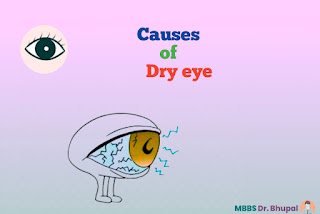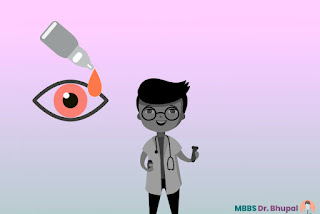Introduction
If you're one of the millions of people who suffer from dry eye, you know how annoying and uncomfortable it can be. But what you may not know is that there are treatments available that can help relieve your symptoms.
In this post, we'll discuss the symptoms, causes, and treatments for dry eye. We'll also give you some tips for how to get relief from this condition.
What Is Dry Eye?
Do you often experience burning, itchy, gritty eyes? If so, you may suffer from dry eye syndrome.
Dry eye is a condition where the eyes don't produce enough tears, or the tears they do produce aren't of the correct consistency. This can lead to a whole range of symptoms, such as dryness, blurred vision, sensitivity to light, and even pain.
There are lots of different causes of dry eye, from hormonal changes to environmental factors like air conditioning and wind. And it can affect people of all ages, though it's most common in women over 50.
What Are the Symptoms of Dry Eye?
Do you sometimes feel like there's something in your eye? Like it's gritty, or you can't seem to get the blurriness to go away? You might be experiencing one of the symptoms of dry eye.
Dry eye is a condition where your eyes don't produce enough tears, or the tears they produce are of poor quality. And when your eyes aren't lubricated properly, it can cause a lot of problems, from mild discomfort to serious vision loss.
There are a few different things that can cause dry eye, from allergies to contact lens wear to age. But the good news is that there are treatments available that can help relieve your symptoms.
What Are the Causes of Dry Eye?
Millions of people suffer from dry eye, a condition that can be quite debilitating. But what causes it?
There are many different factors that can contribute to dry eye, including age, environment, and lifestyle. Some of the most common causes include:
• Smoking
• Exposure to air conditioning or dry climates
• Contact lens wear
• Hormonal changes, such as during menopause
• Certain medications, such as antihistamines and antidepressants
How Can You Treat Dry Eye at Home?
You might be wondering how you can treat your dry eye at home. Here are a few tips:
1. Use a humidifier. A humidifier can help add moisture to the air, which will help your eyes feel better.
2. Blink often. When you're not blinking often, your eyes can become dry and irritated. Try to make a conscious effort to blink more often throughout the day.
3. Use artificial tears. Artificial tears can help add moisture to your eyes and relieve some of the symptoms of dry eye.
4. Take breaks from the computer screen. If you're working on the computer all day, take a break every hour or so to give your eyes a break.
5. Drink plenty of water. Staying hydrated is important for overall health, and it's also good for your eyes!
When Should You See a Doctor for Dry Eye?
If you're experiencing any of the following symptoms, it's a good idea to see your doctor:
- A gritty feeling in your eyes
- Blurred vision
- Eye fatigue
- Sensitivity to light
- Watery eyes
If you're having trouble wearing contact lenses because of dry eye, or your vision is starting to get worse, it's definitely time to seek help. And don't forget, if you're pregnant or breastfeeding, dry eye is even more common, so don't hesitate to speak with your doctor about it.
Can Dry Eye Cause Permanent Damage?
Have you heard of dry eye? It's a condition that affects millions of people, and it can cause a lot of discomfort. Symptoms include dryness, itchiness, redness, and a feeling like there's something in your eye.
But here's the thing: if left untreated, dry eye can cause permanent damage. That's why it's so important to see your doctor if you're experiencing any of these symptoms. He or she can help you find a treatment that works for you.
There are a number of treatments available, including prescription and over-the-counter medications, artificial tears, and even surgery in some cases. So there's no need to suffer from dry eye in silence. There are treatments out there that can help you get relief.
Conclusion
It can be frustrating when you're experiencing the symptoms of dry eye, but with the right information and treatments, you can get relief and feel more comfortable again.
Dry eye can have many different causes, so it's important to figure out what's causing your symptoms. There are many treatments available, both over-the-counter and prescription, that can help relieve your dry eye symptoms.
If your dry eye is severe or chronic, don't hesitate to talk to your doctor about the best treatment plan for you.












0 Comments